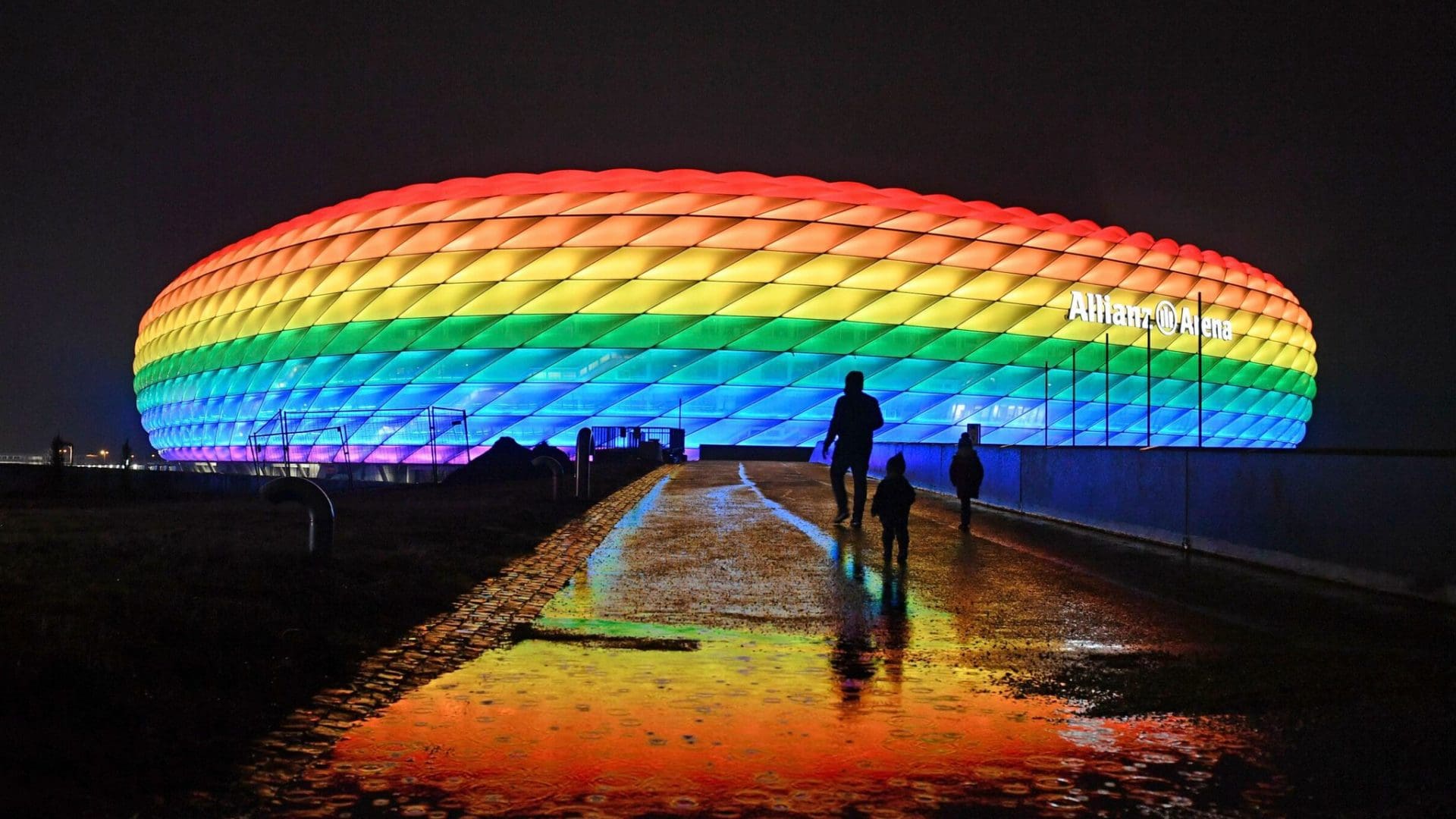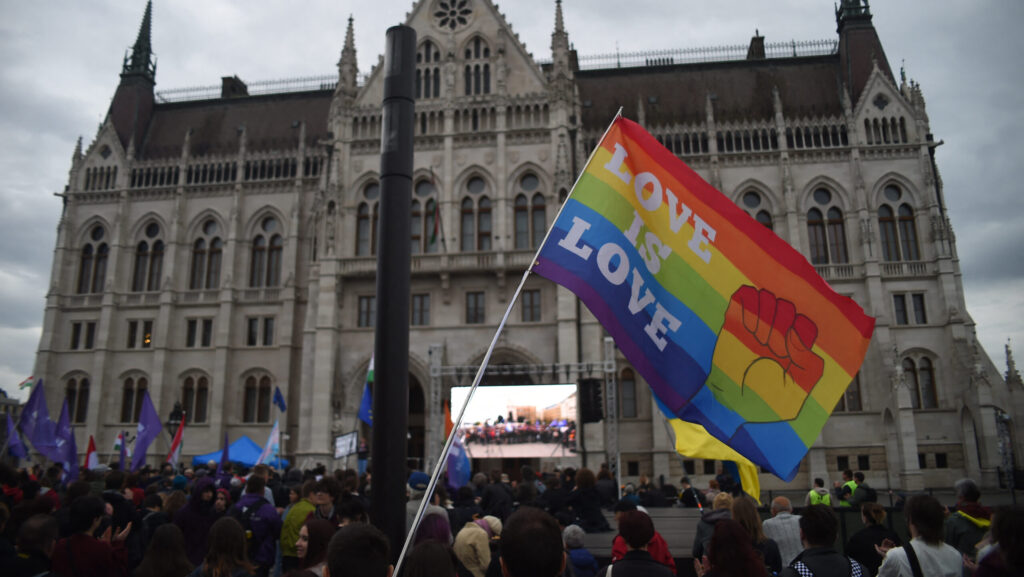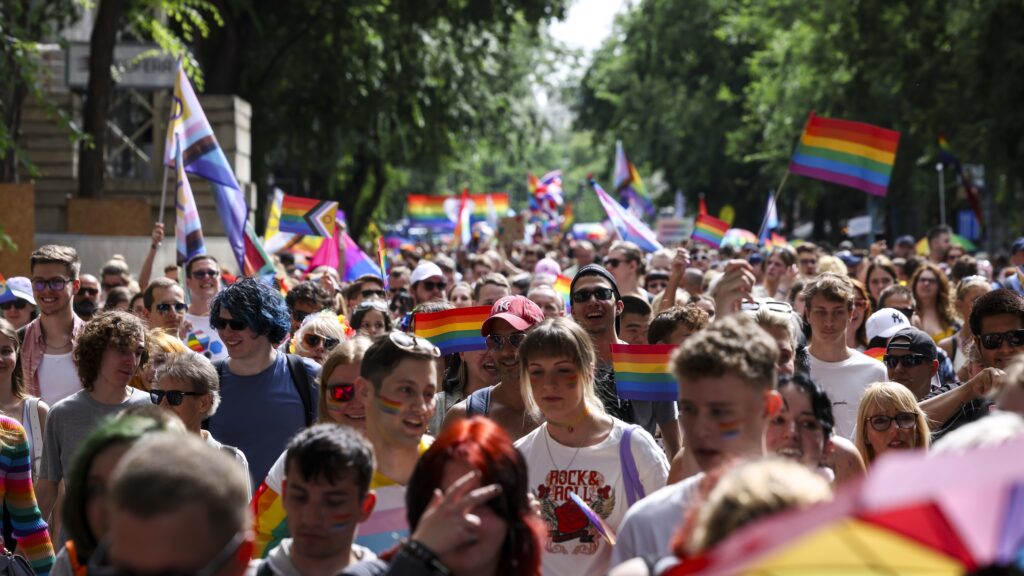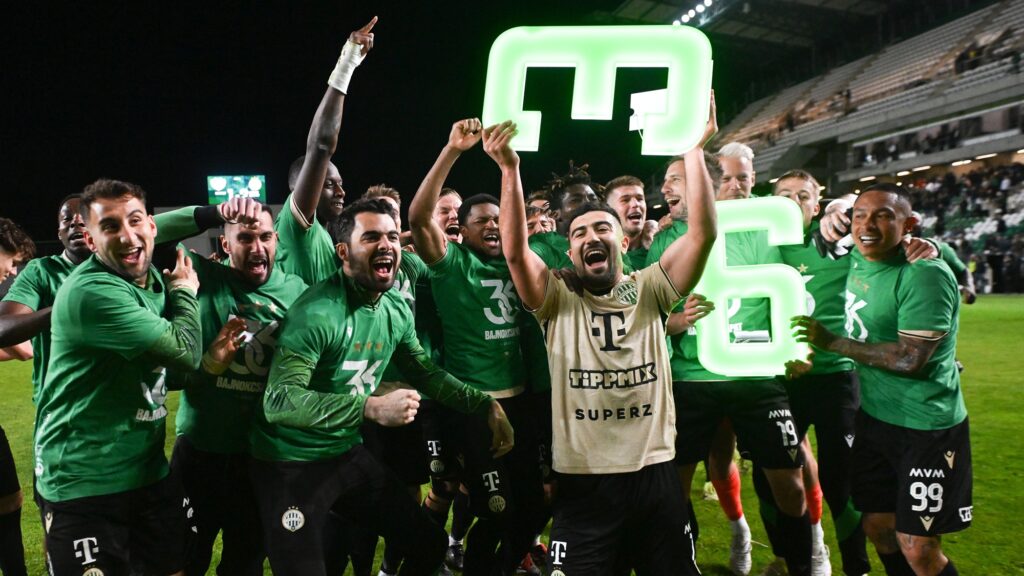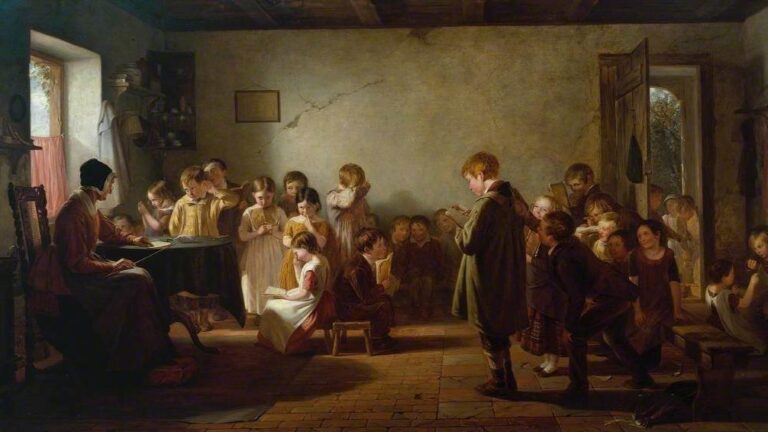Multiple German cities announcing to light up their stadiums in rainbow colours during the Germany – Hungary European Championship match is ironic at best, as it cannot help, but remind everyone the last time sporting events in the country were used for such blatant political propaganda.
In case anyone missed it, the city of Munich submitted a formal request to the UEFA asking the organization to allow them to light up the Allianz Arena in rainbow colours during the Germany – Hungary European Championship match on Wednesday, directly protesting the Hungarian government’s new anti-pedophilia law, which is deemed “anti-LGBT” by many foreign politicians and activists. The UEFA simply declined Munich’s request, stirring international outrage, even though it is clearly included in the EC’s rules that political messages have no place on the field.
In response, other German cities started announcing
one by one that they will display the rainbow on their stadiums during the match, a campaign that was promptly extended to other publicly and privately owned buildings as well across—and outside—the country. Hungary, on the other hand, chose an appropriate form of riposte, namely displaying the Hungarian flag on a number of stadiums in the country during the time of the match. 1-1, it seems.
But what does any of these have to do with 1936? Well, in that year Germany was the host of another sporting mega-event that went down in history as one of the most shameful misuse of such occasions in order to gain legitimacy and spread blatant political propaganda.
Yes, I am talking about the 1936 Berlin Olympics. That Berlin Olympics. You know, the one with Hitler, Jesse Owens, the exclusion of Jewish athletes, the failed boycott movement and the massive propaganda effect it achieved by being the first televised Olympic Games in history. Everything from the composition of the athletes, through the world-record-sized new stadium, right to the masses flashing the Nazi salute every third minute was put on display only to broadcast the superiority of Aryans and the German public’s support for their regime to the whole world. Exposure matters and Hitler certainly knew that.
Of course, sport and politics have a long history together. In a way, sport was always politicized, especially the so-called mega-events like the Olympics or the World Cup, which hold significant soft power projection opportunities. Similarly, the nowadays fashionable kneeling during the anthem as a form of protesting racism (introduced by the NFL quarterback, Colin Kaepernick in 2016) is nothing new either, as it draws directly from the two black athletes who raised their fists on the podium after winning gold and bronze medals at the 1968 Mexico City Olympics during at the heights of the American civil rights movement.
And yet, there is something odd about the rainbow-coloured stadium row we are now witnessing between Germany and Hungary. It is not just about brand building most countries use the opportunity of hosting mega-events like this usually do, nor is it an individual statement like Kaepernick and others who choose to kneel during the opening ceremonies. No, this is as if the entire country have decided in unison to condemn Hungary for its new law and are trying to shove their opinions down the throat of the whole world. Well…, just like a certain dictator did in the 30s.
And no, I am not saying that some rainbows on buildings mean that today’s Germans are Nazis. That would obviously be a massive overstatement. I am only pointing out that Germans, out of everybody, should know that flooding sporting events with propaganda are not a pretty sight.
For the supporters of Munich’s failed request, the action would have been a symbolic protest for human rights and against discrimination. If that was the case beyond any doubt, I bet the whole issue would have gone down differently, as the UEFA allows kneeling during the anthems too. But this law was passed by a national majority government—voted into power for the third time consecutively—representing its sizeable voter base among the Hungarian public. Also, it is quite arguable whether the law is homophobic or not, as in the government’s conservative view it does not discriminate one sexuality over the other, but simply protects children from premature exposure to the dynamically changing world of sex and gender entirely.
But why would LGBT-flags constitute propaganda, for that matter?
So, in this sense the debate around the law is far from being settled, so any kind of public stance in it means subjectively favouring one side over the other and using the platform of the European Championship to broadcast that specific political message—like it was an objective truth. And that is propaganda, at least arguably so. But let me know if there is a more fitting word for making a political statement fifty meters high and to be viewed by hundreds of millions across the globe. I’ll wait.

